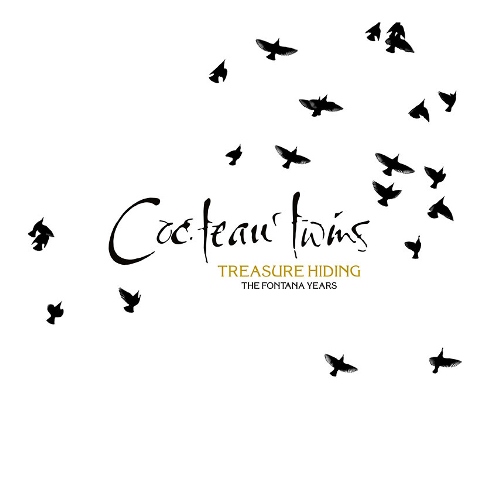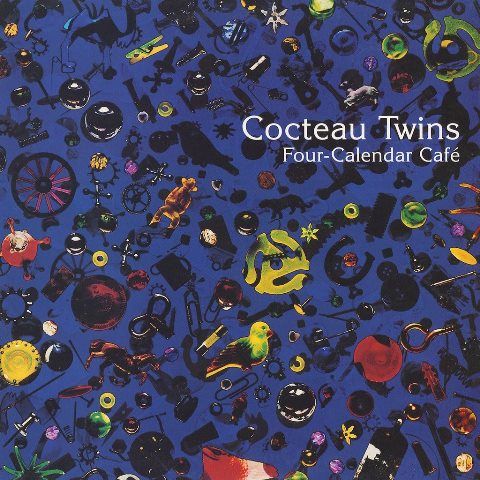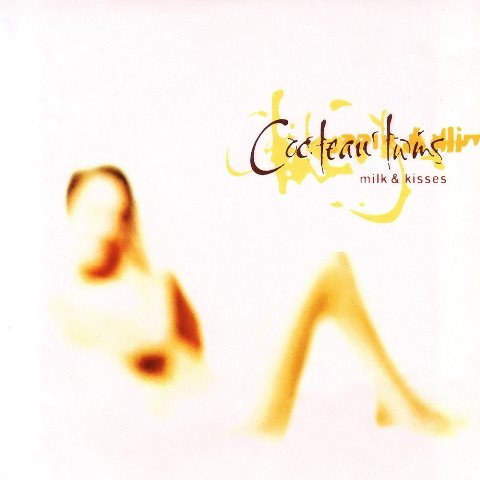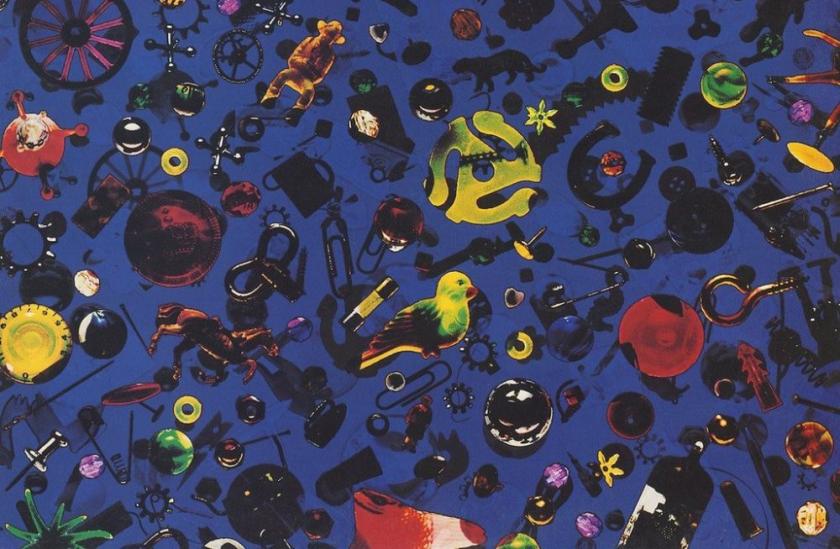Think of Cocteau Twins. Their label 4AD will inevitably be high on the list of markers coming to mind. Whatever they were like as people, mysterious, oblique, shadowy and other similar adjectives were conjured for the band – and label alike. Despite interpretations of them as something other, their 1990 album 4AD Heaven or Las Vegas went Top Ten in the UK, entered the American Top 100 and sold quarter of a million copies.
Yet Cocteau Twins’ final two albums came out on Fontana, an adjunct of the major label Phonogram which, in time, was absorbed into the multi-national conglomerate Universal. That they were no longer on independent label from 1993 wasn’t a concern: in America, their 4AD releases were issued by Capitol. It was more that they might lose something with the change.
 At the time, Fontana’s prime indie-ish act was James. They also had former Creation band The House of Love, the idiosyncratic Pere Ubu, The Fall, Ocean Colour Scene, Robert Plant, Swing Out Sister and Tears For Fears on their books. The Catherine Wheel too who, despite their rockiness, alongside The House of Love were probably the label’s band most on Cocteau Twins’ wavelength. There was no Fontana sound or style though.
At the time, Fontana’s prime indie-ish act was James. They also had former Creation band The House of Love, the idiosyncratic Pere Ubu, The Fall, Ocean Colour Scene, Robert Plant, Swing Out Sister and Tears For Fears on their books. The Catherine Wheel too who, despite their rockiness, alongside The House of Love were probably the label’s band most on Cocteau Twins’ wavelength. There was no Fontana sound or style though.
Attempts to understand Cocteau Twins place in this varied landscape are helped by the arrival of Treasure Hiding – The Fontana Years, a new slipcase-housed 4-CD set reissuing everything – bar two tracks: a collaboration with Faye Wong and their contribution to the Judge Dredd soundtrack were unlicensable – they recorded for the label over 1993 to 1996. They split in 1997, so this a one-stop primer on their final works. The albums covered are Four-Calendar Café (their seventh: issued in October 1993), its follow-up Milk & Kisses (March 1996) and the non-album material from several EPs and singles. There are also two tracks from the Volume compilations, the bonus tracks from the Japanese version of Milk & Kisses and a pair of BBC sessions recorded in March and April 1966. The new remastering is by the band’s Robin Guthrie. Nothing is previously unreleased.
 The accompanying booklet’s liner notes acknowledge that change was not limited to signing with a new label: the relationship between singer Elizabeth Fraser and Guthrie was over; they had a daughter; bassist Simon Raymonde was a father and his own father had died; Fraser would be in a relationship with Jeff Buckley, marked by the title of Milk & Kisses’ “Rilkean Heart” and an album-sleeve dedication. Guthrie has acknowledged he had drug problems. It's a wonder they made any records during this period.
The accompanying booklet’s liner notes acknowledge that change was not limited to signing with a new label: the relationship between singer Elizabeth Fraser and Guthrie was over; they had a daughter; bassist Simon Raymonde was a father and his own father had died; Fraser would be in a relationship with Jeff Buckley, marked by the title of Milk & Kisses’ “Rilkean Heart” and an album-sleeve dedication. Guthrie has acknowledged he had drug problems. It's a wonder they made any records during this period.
From a musical perspective, Four-Calendar Café is aural evidence for change. It’s unlikely this was to do with Fontana as Raymonde has said the label left the band alone. Beyond the very clean (rather than full-bodied) self-production their lyrics now had words as such and were delivered in a way which could be understood. More problematically, the album’s third track, the pointedly titled “Bluebeard”, uncomfortably incorporated the then-modish shuffling baggy rhythm. “Squeeze-Wax” is just too straightforward. Instead of standing apart and consequently being timeless, Cocteau Twins had become of the time. While there was nothing wrong the album’s songs, they were put over with a lack of finesse. Beyond the internal turbulence, possibly this was a response to taking account of their diverse new label-mates?
 There was another issue. By around 1989/1990 Cocteau Twins had graduated from being a band as such to being exemplars of a genre: shoegazing. Indeed, Guthrie knew this as from 1990 to 1992 he produced Lush for 4AD. In 1991 he did the same for Chapterhouse. Back in 1987, he had worked with A.R. Kane, helping codify aspects of what would become shoegazing. Working with bands who appropriated elements of his own band’s sound in the run up to signing with Fontana may have had an impact: maybe inducing a retreat from part of what defined Cocteau Twins. Also, the emergence of the Cocteaus-inclined Kitchens of Distinction, Shelleyan Orphan, The Sugarcubes and The Sundays may have had an effect too.
There was another issue. By around 1989/1990 Cocteau Twins had graduated from being a band as such to being exemplars of a genre: shoegazing. Indeed, Guthrie knew this as from 1990 to 1992 he produced Lush for 4AD. In 1991 he did the same for Chapterhouse. Back in 1987, he had worked with A.R. Kane, helping codify aspects of what would become shoegazing. Working with bands who appropriated elements of his own band’s sound in the run up to signing with Fontana may have had an impact: maybe inducing a retreat from part of what defined Cocteau Twins. Also, the emergence of the Cocteaus-inclined Kitchens of Distinction, Shelleyan Orphan, The Sugarcubes and The Sundays may have had an effect too.
The Fontana releases following Four-Calendar Café were less awkward. Milk & Kisses was more assured and much of the two Tishbite EPs from March 1966 rank as amongst the best of band’s recordings. Fluency had returned but it feels as if Cocteau Twins lost their way at the point they signed with Fontana. There was some fun too: in December 1993 they issued a Christmas single with a wonky version of “Frosty the Snowman”.
As with any complete-works-of-a-period collection, Treasure Hiding – The Fontana Years is patchy. However, the inconsistency does not run throughout this closing phase of Cocteau Twins lifespan. In hearing this material over 20 years on, the surprise is realising that they experienced a wobble after which they righted themselves and then split while beginning a follow-up to Milk & Kisses. After-the-fact knowledge confirms the end would have come anyway, but it is less expected to be reminded they were still thriving musically shortly before calling it a day.
- Next Week: Island Records’ mainstays rematerialize – Mott The Hoople’s Mental Train box set and new editions of John & Beverley Martyn’s Stormbringer! and The Road to Ruin
- Read more reissue reviews on theartsdesk














